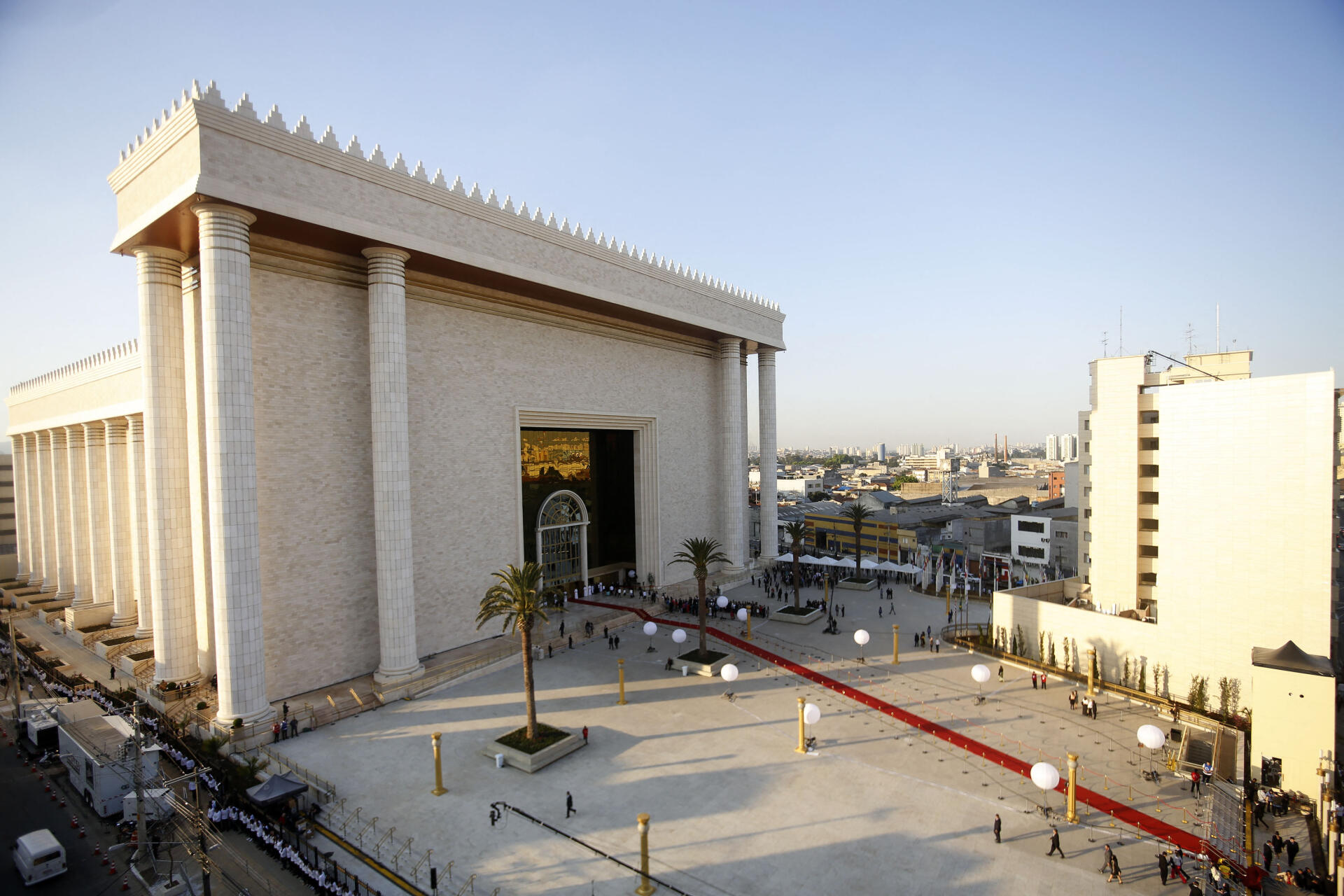


The evangelical wave surging across Brazil
InvestigationIn the world's largest Catholic country, evangelicals are making their mark on the political scene. Their ascent seems undisturbed by the scandals involving their leaders or links with drug traffickers.
"Don't be ashamed! Abandon your doubts!" Pastor Renato called out to the thousands of believers assembled before him. In his dark suit and slicked-back hair, the religious leader went into a long sermon on the golden calf. This Sunday, November 26, he was on stage for two hours. With lyricism, humor, hands raised towards heaven or on his knees to pray, the orator stirred the fervor of his flock, many of whom were moved to tears. It was a remarkable spectacle, delivered with the distinct flair that only evangelicals possess.
The setting was spectacular. Erected in the heart of São Paulo, the Temple of Solomon purportedly replicates the one in Jerusalem, destroyed by Nebuchadnezzar II in the sixth century BC. Today, it is the largest religious edifice in Brazil. It's often touted as "almost twice the size of the Christ in Rio!" With its grand scale of 10,000 seats, a length spanning 126 meters and an impressive height reaching 55 meters, it commands a space equivalent to five football fields. At the rear, a "biblical garden" offers an immersive experience into the Old Testament, with a replica of Moses' Tabernacle in its "original dimensions." Inaugurated in 2014 by the Universal Church of the Kingdom of God, the lavish premises are said to have cost a total of €210 million.
Kitschy and colossal, the complex illustrates the swift rise of evangelicals in Brazil. In the 1970s, the country was still 91% Catholic and 5% Protestant. Five decades later, the ratio is 50% to 31%, or 66 million Protestants, according to the Datafolha Institute. At this rate, the Roman Catholic Church could find itself in the minority as early as 2032: a religious transition of unprecedented speed in a country with a population of 210 million.
The evangelical surge – the subtitle of the book Jésus t'aime ("Jesus loves you") by journalist Lamia Oualalou – can be observed throughout the country, particularly on the outskirts of southeastern cities such as São Paulo and Rio de Janeiro, and on the agricultural frontier, such as Mato Grosso and Amazonia, where Protestants are already said to be in the majority.

For five centuries, the Roman Catholic Apostolic Church was at home on Terra da Vera Cruz ("land of the true cross"), the first name given to Brazil. Under Portuguese colonization (1500-1822), it was responsible for education; catechizing the natives; and keeping registers of births, deaths and marriages. Upon its independence, the Empire of Brazil (1822-1889) established Catholicism as its official religion.
You have 90% of this article left to read. The rest is for subscribers only.




